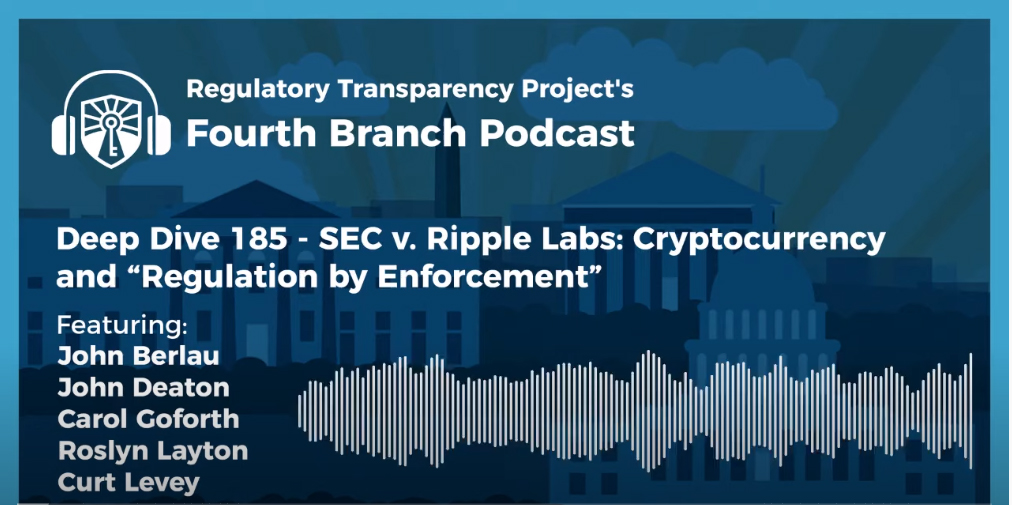By Roslyn Layton. June 30, 2021. (Forbes)
The Securities and Exchange Commission’s (SEC) bombshell lawsuit against fintech startup Ripple Labs is now a cause célèbre in the cryptocurrency community, but its sweeping implications about regulatory overreach against innovation is provoking principled debates in some of the country’s most influential policy circles. The Federalist Society’s Regulatory Transparency Program (RTP), an organization dedicated to fostering discussion and understanding of regulation, featured experts in an event titled SEC v. Ripple Labs: Cryptocurrency and “Regulation by Enforcement” last week.
In December, the SEC sued Ripple and two of its top executives for seven years of distributions of the cryptocurrency XRP which the agency labeled as illegal unregistered securities trades. Ripple offers a global payments platform for some 2 million users worldwide for the XRP token and its fully decentralized ledger. The company ferociously disputes the allegations by making clear that the regulatory agency allowed billions of XRP tokens to circulate freely on global cryptocurrency exchanges for seven years without making such a determination, despite being asked in public and in private for that specific clarity for years. The SEC also alleges that XRP’s only utility is to be an investment contract in Ripple and that all XRP holders depend on Ripple’s actions to obtain a return on their holdings. The suit seeks to enjoin the registration of XRP as a security and preclude Ripple’s executives from participation in the market.






